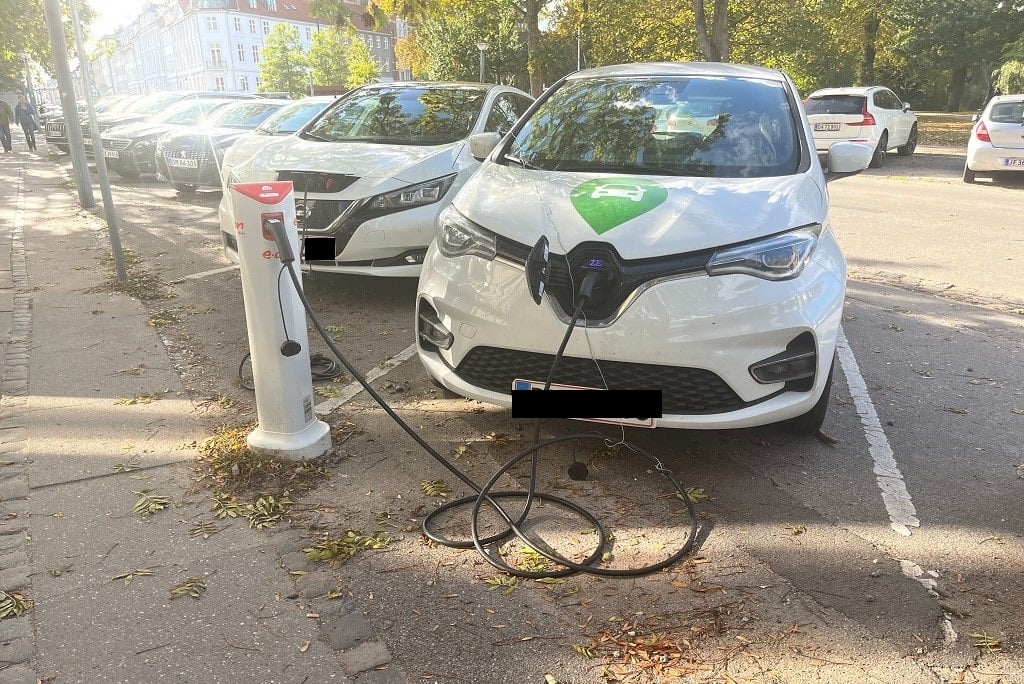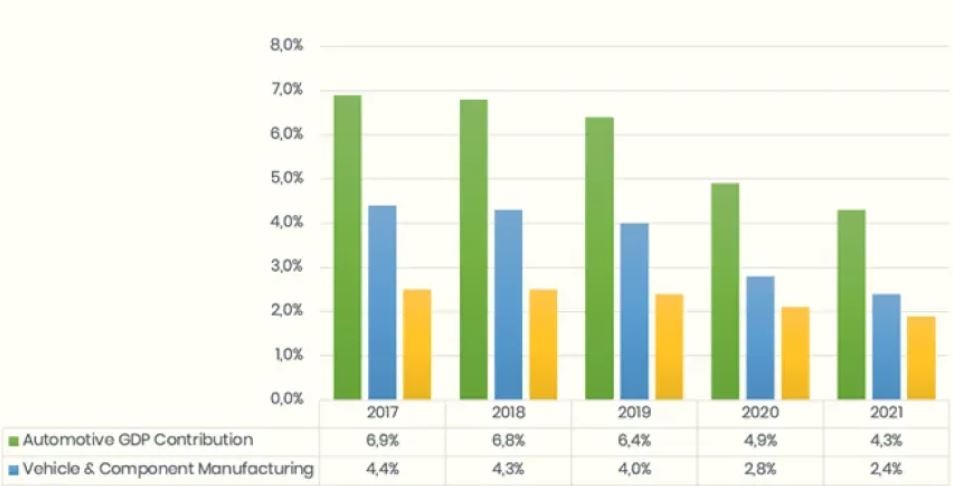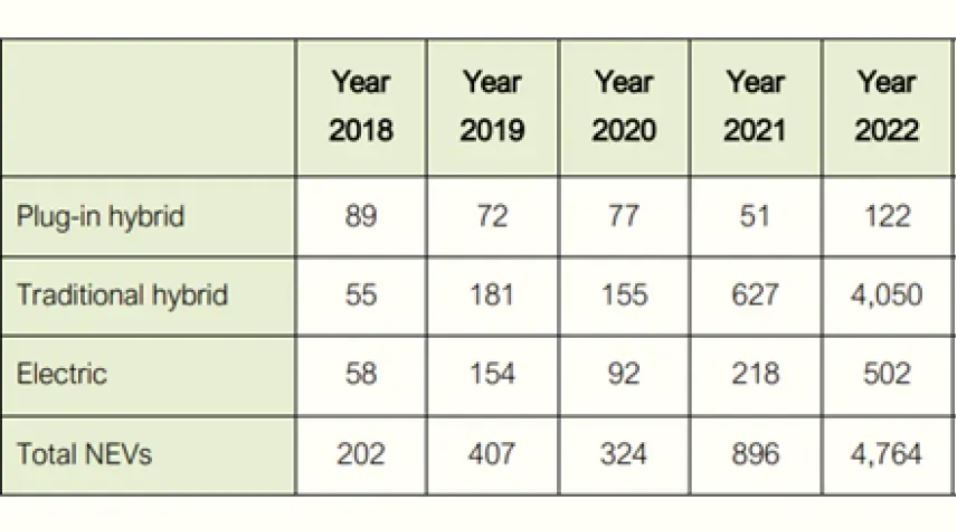
A key policy to support the development of new energy vehicles is delayed and the policy uncertainty is impacting the progress of the automotive industry, writes Thesele Mampane.
- For climate change news and analysis, go to News24 Climate Future.
Yet again, we have witnessed great plans but little action on the part of the government – resulting in further constraint on South Africa's much-need economic growth and global competitiveness.
In May 2021, the Department of Trade, Industry and Competition published its Auto Green Paper on The Advancement of New Energy Vehicles in South Africa.
This paper sought to establish a policy foundation that would enable the country to coordinate a strategy aimed at positioning South Africa at the forefront of the production of electric vehicles and components. The key focus areas of the policy framework, as outlined in the green paper were as follows:
- Creation of a high-yielding business environment, including an appropriate fiscal and regulatory framework, that makes South Africa a leading and a highly competitive location;
- Support and investment in the expansion and development of new and existing manufacturing plants to support the production of new energy vehicles (NEVs) and components within South Africa and to grow the level of employment in the sector;
- Development and investment in new energy vehicle component technology and expansion of the fledgling electric supply chain, by increasing support and investment in a set of unique NEV components;
- Reinvestment and support towards reskilling and upskilling of the workforce to ensure the right skills are available for the design, engineering and manufacturing of electric vehicles and related components and systems;
- The transition of South Africa towards the cleaner fuel technologies available globally;
- Adoption of new and sustainable manufacturing processes to significantly reduce greenhouse gas emissions and improve our environmental wealth; and
- Ensuring that research and development investment is strategically targeted at activities that are likely to give South Africa a competitive advantage.
What has happened since then?
At the time of publishing the paper, it was envisaged that, following the public consultation period, the policy proposals would be submitted to Cabinet for consideration by October 2021. However, this has not yet happened with the minister indicating that the policy would only be finalised this year.
The exact reasons behind the delay are not entirely clear; however what is clear is that the industry cannot afford policy uncertainty. Particularly when considering the significance of the automotive industry to the local economy and its contribution to the country's GDP.
READ | Load shedding won't stop SA from getting used to electric cars, says industry
What is the significance of the SA automotive industry and NEVs in particular?
Figure 1 below, obtained from the National Association of Automobile Manufacturers of South Africa (Naamsa) illustrates how the sector's contribution to the country's GDP has trended over the past few years.
The sharp decline in 2020 and 2021 is attributable to the Covid-19 pandemic and its impact on personal mobility needs as well as supply chain disruptions. However, despite the decline, a total GDP contribution of 4.3% as at 2021 is still significant.
According to Naamsa, the industry accounts for 17.3% of the country's manufacturing output and is the country's fifth largest exporting sector, contributing 18.1% of total exports.
Naamsa's new vehicle sales report for December 2022 shows that a total of 880 413 new vehicles (across all vehicle categories) were sold during the year, of which 40% or 351 450 vehicles were exported, while the balance was sold locally.
This puts into perspective just how important exports are to the industry. South Africa's major export regions are Europe, Asia and Africa, with Europe accounting for around 72% of all exports as at the end of 2022.
Within Europe, the UK, Germany, France and Italy are the top destinations. This is particularly important when considering that the European Union is developing legislation to ban the sales of fossil-fuel-reliant vehicles on their roads by 2035. In the UK, this has been brought forward by five years from 2035 to 2030.
READ | Nick Hedley | How SA can shift electric vehicles up a gear
The legislative shift in the European Union (and the adoption of similar policy positions outside of Europe) will accelerate the demise of internal combustion engines (ICE). In 2019, Bloomberg's New Energy Finance predicted that electric vehicle sales would surpass ICE vehicle sales by 2038.
The green paper rightfully points out that this could happen sooner than expected, depending on how quickly regulation is implemented across the world, as well as affordability and shifting consumer buying patterns.
One thing is clear though, for the South African automotive industry to remain competitive it will require a local legislative framework that promotes and supports a shift towards NEVs.
What is needed to address the situation?
Naamsa's New Energy Vehicle Roadmap document released on 20 February 2023 highlights that, for a meaningful NEV transition to happen in South Africa, balance will need to be struck between the following:
- incentivising a sustained shift in domestic market demand to NEVs;
- establishing an appropriately-aligned renewable energy based charging infrastructure; and
- supporting a shift in South African vehicle production away from ICE vehicles to NEVs.
This approach would deal with both the demand and supply side considerations for South Africa's NEV transition. The green paper highlighted that petrol and diesel vehicles collectively make up 90% of the overall South African vehicle market, with NEVs consistently being below the 1% mark between 2011 and 2021.
Over this period, only 4 892 NEVs were sold out of the 5 694 860 aggregated sales.
The sale of NEVs improved significantly in 2022, driven by a drastic increase in traditional hybrids, as shown in Figure 2 below, bringing the total NEV sales for the year to 4 764 units. Although NEV sales are trending upwards, the sale of fully electric vehicles remains relatively low.
Two key stumbling blocks for NEV demand are the price differential between NEVs and ICE vehicles and the lack of sufficient public charging stations across the country. To overcome this, the industry needs clarity in the form of a supportive regulatory framework.
The automotive industry, in its efforts to support the transition of the industry to a NEV market, has outlined a series of interventions for government’s consideration, including, but not limited to:
- ensuring that the manufacturing base in South Africa is protected and strengthened;
- the introduction of NEV purchasing subsidies;
- alignment on NEV import tariffs from the EU; and
- the provision of a rebate on the import of specified NEV components for a limited period.
Furthermore, the industry has indicated that it is prepared to match the purchasing subsidy from government for the different NEV categories, in order to narrow the price differential between NEVs and ICE vehicles further, to stimulate an accelerated off-take of NEVs in the country.
Where are we now?
As things currently stand, the automotive industry is ready for the changes that are required to make the necessary (and speedy) transition required to NEVs. The industry has outlined what is required from the government and has also indicated what it is willing to do to help facilitate the process.
The industry cannot afford any further delays, particularly if it is to remain competitive globally. The new vehicle market has made a strong recovery from the lows of the pandemic and carried that momentum into 2022, with some of it spilling into 2023 despite the current challenging macroeconomic backdrop.
However, if the sector is to grow and trend back towards contributing around 7% of GDP, it needs to be primed to take advantage of the new opportunities.
The government, through the minister and Department of Trade, Industry and Competition, has committed to finalising the EV policy this year.
Whether or not that happens remains to be seen - but one thing is certain: further delays will put yet another damper on the industry's growth efforts.
Thesele Mampane is an investment analyst at Futuregrowth.
News24 encourages freedom of speech and the expression of diverse views. The views of columnists published on News24 are therefore their own and do not necessarily represent the views of News24.




 Publications
Publications
 Partners
Partners














